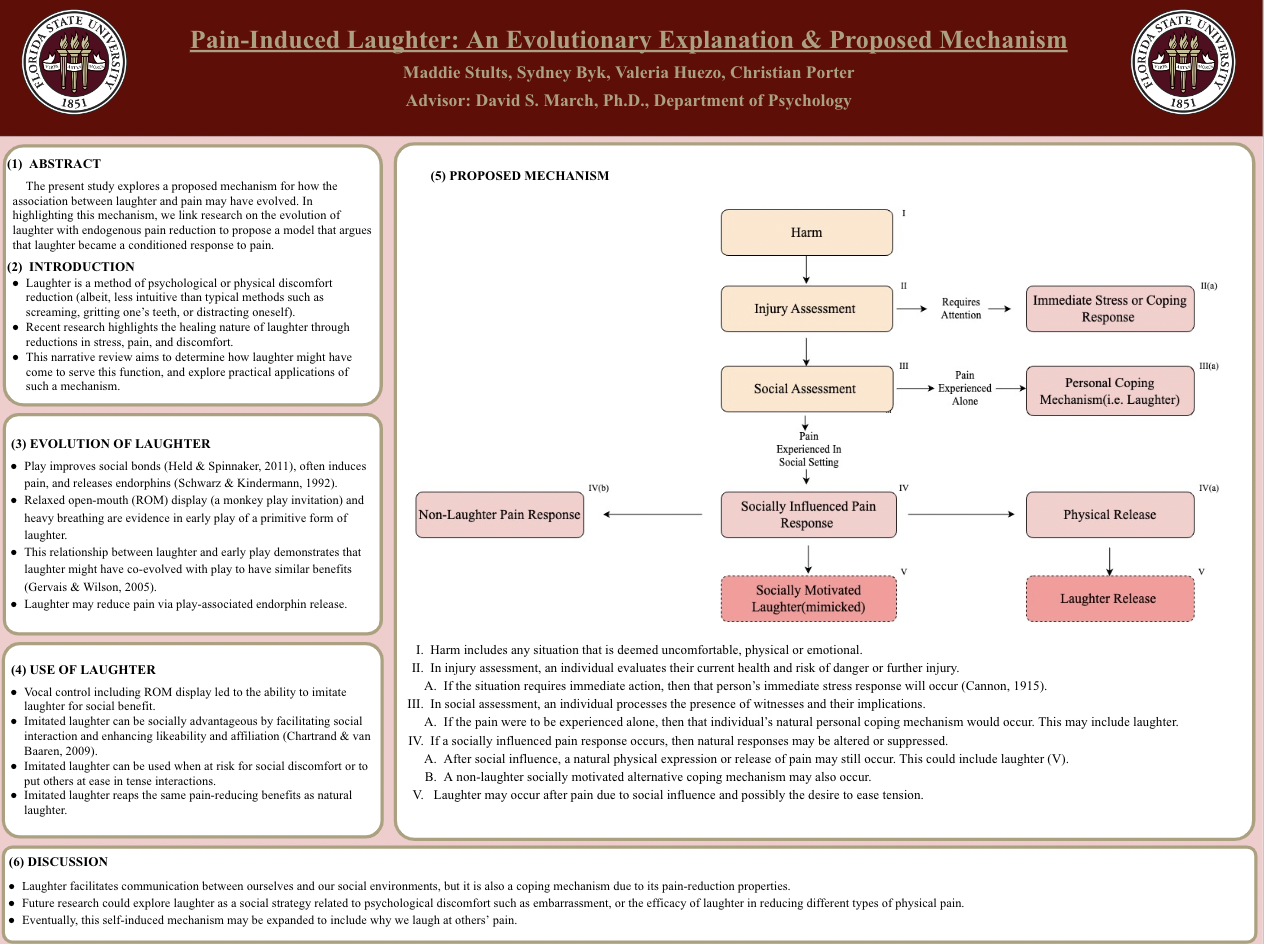Research Symposium
23rd annual Undergraduate Research Symposium, April 6, 2023
Sydney Byk Poster Session 1: 11:00 am - 12:00 pm/ Poster #152
BIO
Sydney is a senior at Florida State University studying Behavioral Neuroscience emphasizing mental health care. She has worked in FSUs March Lab since 2021 and is passionate about a wide variety of research topics. For the last year, she has been studying laughter and its intersections with social coping and pain management. After finishing her bachelor's degree Sydney is hoping to apply to graduate school while working in healthcare. In her free time, she enjoys painting, volunteering with Tallahassee Memorial Healthcare, and working with plants.
Pain-Induced Laughter: An Evolutionary Explanation & Proposed Mechanism
Authors: Sydney Byk, Dr. David MarchStudent Major: Behavioral Neuroscience
Mentor: Dr. David March
Mentor's Department: Psychology Mentor's College: Florida State University, College of Arts and Sciences Co-Presenters: Maddie Stults, Valeria Huezo, Christian Porter
Abstract
Humans have the ability to reduce our discomfort when we are in physical or psychological pain. Some, for example, scream in release, grind their teeth, induce a new painful and distracting stimulus, or look to others for a social distraction. There is, however, a less intuitive method that works to reduce discomfort: some people laugh or smile. Anecdotally, this occurs in the context of others’ visible pain with examples like America’s Funniest Home Videos and slapstick-style media clearly demonstrating our penchant for laughing at another's pain. This method may also be turned inward to reduce discomfort when experiencing it ourselves. Recent research has indeed highlighted the possible healing nature of laughter, with data implying it can reduce stress, pain, and discomfort. However, it remains unclear why laughter has this effect. That is, how did laughter come to function as a means to reduce social and physical discomfort? And did such a process evolve to make ourselves feel better or is that merely an exaptation of an originally unrelated process? We are exploring one proposed mechanism for how the association between laughter and pain may have evolved. In highlighting this mechanism, we link research on the evolution of laughter with that on endogenous pain reduction to propose a model that argues that laughter became a conditioned response to pain.
Keywords: Laughter, Pain


